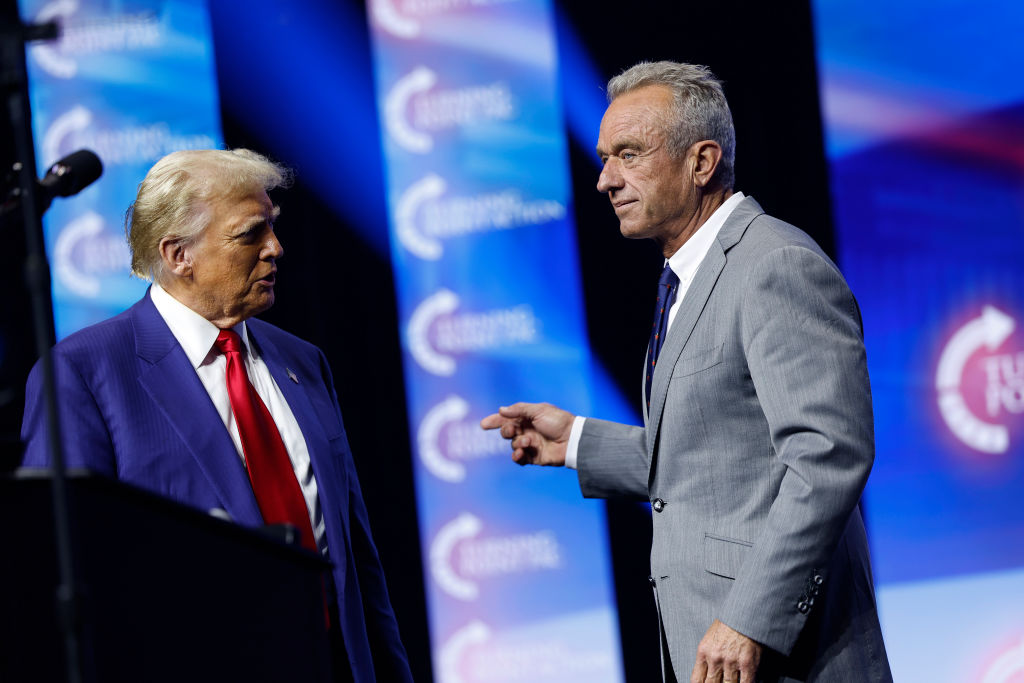American conservatives are often accused of narrow-minded parochialism, but in recent years, the right has turned its gaze abroad.
The Brexit referendum and the rise of Boris Johnson in the United Kingdom anticipated the potential appeal of conservative populism to working-class voters. Alt-right intellectuals look to Singapore’s curious mix of technocratic managerialism and libertarian economics as a blueprint for governance, while their more extreme (and extremely online) fellow travelers celebrate would-be strongmen like Brazil’s Jair Bolsonaro and the Philippines’ Rodrigo Duterte. More recently, the presidential campaign of Éric Zemmour in France has captured the imagination of immigration restrictionists.
But the biggest beneficiary of the right’s newfound internationalism is Viktor Orbán, Hungary’s conservative prime minister and black sheep of the European Union. Over the past year, conservative figures from former vice president Mike Pence to cable TV host Tucker Carlson have visited Budapest. Next spring, the Conservative Political Action Conference, an annual gathering of right-wing activists, will hold its first meeting outside the United States in the Hungarian capital.
All of this attention raises the question: does a landlocked Eastern European country of 10 million people really point the way forward for American conservatism?
If Hungary is the future of the American right, Republicans should brace themselves for some dramatic changes to party orthodoxy. Social conservatives often praise Orbán for his pro-child tax policies and subsidies for family formation, but the Hungarian prime minister’s statist instincts are much more far-reaching. Disillusioned by Eastern Europe’s bumpy transition to market capitalism in the ’90s and the global financial crisis of the late aughts, Orbán is not committed to the free market pieties that still dominate conservative discourse in the United States. The economic alliances he has forged — with German car manufacturers, for example, and the Russian nuclear power industry — reveal a politician who is quite comfortable meddling directly in the economy.
Orbán’s handling of the Covid pandemic is a case in point. Hungary’s ruling Fidesz party recently approved over $7 billion in new spending, including tax rebates and pension and minimum wage hikes. The government has also announced a hard cap on fuel prices. Last winter, Fidesz implemented a draconian Covid lockdown, including business closures, curfews, and mask mandates.
Beyond economics, Orbán’s interventionist instincts would be a radical departure for the American right. Through appointments and financial patronage, Hungary’s national government wields significant influence over key cultural and academic institutions, influence that Orbán has enthusiastically wielded to advance conservative causes. Fidesz has also “gone green,” banning many single-use plastic products last summer. It is hard to imagine a Republican Congress emulating these policies.
Then there is Orbán’s checkered record on civil liberties. While the American right frets about the “deep state” and is increasingly estranged from a national security establishment it sees as bloated and politicized, Orbán’s government was recently caught using spyware to monitor the phones of opposition journalists.
Proximity to power tends to assuage fears of government overreach, and conservatives may forget their concern for civil liberties if they retake the presidency in 2024. Other, farther-reaching trends have also made the Republican Party amenable to activist government. The decline of blue-collar manufacturing and the rightward drift of working-class voters have renewed conservative interest in industrial policy and protectionism. In view of the left’s near-total dominance of elite media and academic institutions, Orbán’s use of state power to level the cultural playing field also looks increasingly attractive.
From economic anxiety to fears of mass immigration, many of the same forces roiling American politics are at work in Hungary. However, these forces are operating in two very different environments. The most obvious difference between the two countries is demography. Since the end of the First World War, and for the entirety of its post-1989 democratic existence, Hungary has been almost entirely Hungarian. When Orbán speaks about the country’s identity and national interests, it is against this backdrop of ethnic and cultural uniformity.
The United States, on the other hand, is fractious, divided, and multicultural. This environment has never been conducive to consensus (conservative or otherwise), and even if the American right becomes less attached to small government, a powerful strain of folk libertarianism will endure. This is not the ideology of pro-market think tanks, white papers, or academic economists. It is a cultural impulse embodied by Gadsden flags, opposition to private-sector mask and vaccine mandates, and Tea Party protesters telling government to keep its hands off their Medicare. This impulse is unpredictable, inarticulate, and not particularly concerned with ideological consistency. It is also a powerful force in American society that is largely absent from countries like Hungary, which imposed strict Covid lockdowns last winter with nary a peep of protest.
In an insightful essay on the post-Trump “New Right,” the writer Tanner Greer highlights an emerging rift between conservative moralists, who are open to government intervention and look to figures like Orbán for inspiration, and backcountry libertarians, who are culturally and politically alienated from the Left but uninterested in replacing a stultifying liberal consensus with a moralizing conservative one.
Orbán’s political success and his talent for raising liberal hackles, which fits nicely with the right’s new ethos of “owning the libs,” will continue to win him admirers in the American conservative movement. His statist brand of policymaking, however, will be a much harder sell in a heterogenous, divided America.
Will Collins is a teacher in Budapest, Hungary.

























